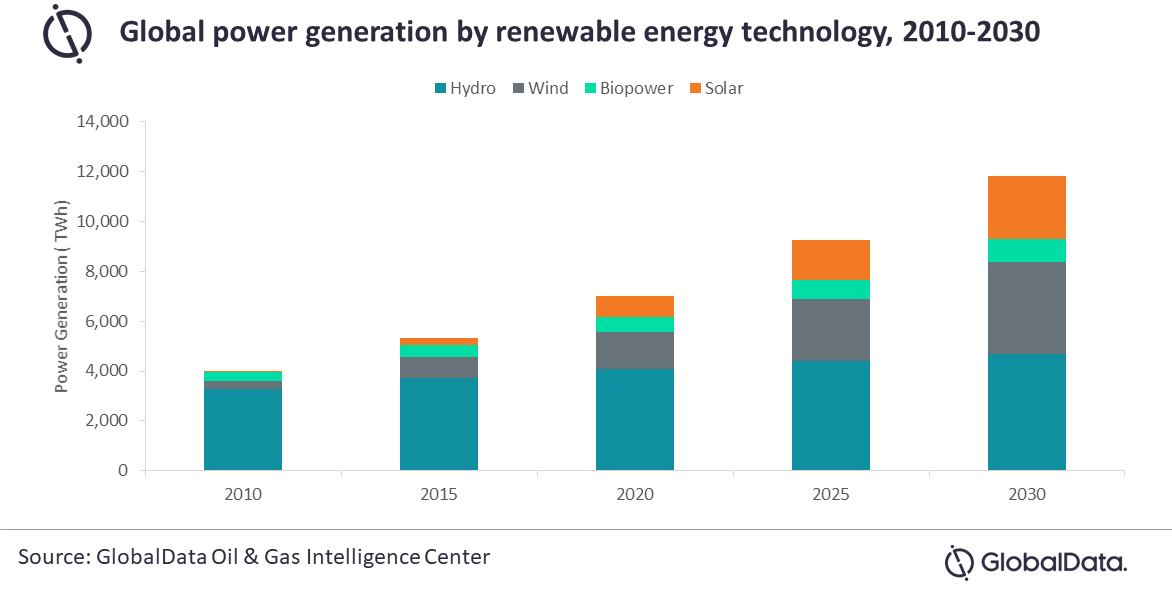Jun 11 2021
Expected low demand for fossil fuels is compelling major oil and gas companies - including BP, Total and Shell - to actively restructure their businesses to add renewable power projects in their portfolio. This will help these companies reduce their carbon intensity and align with the changing energy mix in the long run, according to GlobalData, a leading data and analytics company. Moreover, oil and gas EPC vendors are enabling the energy transition by building capabilities to set up renewable energy infrastructure.

Image Credit: GlobalData
Ravindra Puranik, Oil and Gas Analyst at GlobalData, comments: “Global power demand is expected to grow at a compound annual growth rate (CAGR) of 2.5% from 2020 to 2030, according to GlobalData. A significant portion of this will be fulfilled by renewable power generation. This growth outlook makes renewable power a key market for players across the energy sector, including oil and gas companies whose traditional market is at risk amid the transition to low-carbon sources.”
Within the renewable power sector, solar and wind energy are expected to show the highest growth rates over the next ten years.
Puranik continues: “Solar power generation, including solar PV and solar thermal, is expected to grow at a CAGR of 11.9% between 2020 and 2030. Meanwhile onshore and offshore wind segments are expected to collectively grow at a CAGR of 9.4% over the same period. Various governments are actively focusing on reducing carbon emissions and have enacted laws to facilitate decarbonization in their countries. Electrification, based on renewable energy sources, is an ideal approach to reduce carbon emissions. It also marks a strategic shift away from fossil fuels in the global effort to mitigate the threat to climate change.”
A key driver enabling the transition to renewable power is falling cost.
Puranik adds: “Traditionally, renewable power projects had a significant cost disadvantage over coal- and gas-fired power plants. However, in recent years, their economic competitiveness has improved significantly due to government policies and incentives, as well as technological advances. This has incentivized oil and gas majors such as BP, Equinor and Shell to invest in wind power generation. BP and Total are also leading the way in terms of upcoming solar power capacity.”
The growing role of renewable energy poses a major threat to fossil fuel-based power generation. The share of natural gas-based power generation will be threatened by renewables growth and is likely to be the next biggest loser in the global power generation mix after coal.
* Data taken from GlobalData’s thematic report, ‘Renewable Power in Oil & Gas’